Agriculture & Environment
72nd Graduation: Doctoral Citations – CAES
Published
4 years agoon
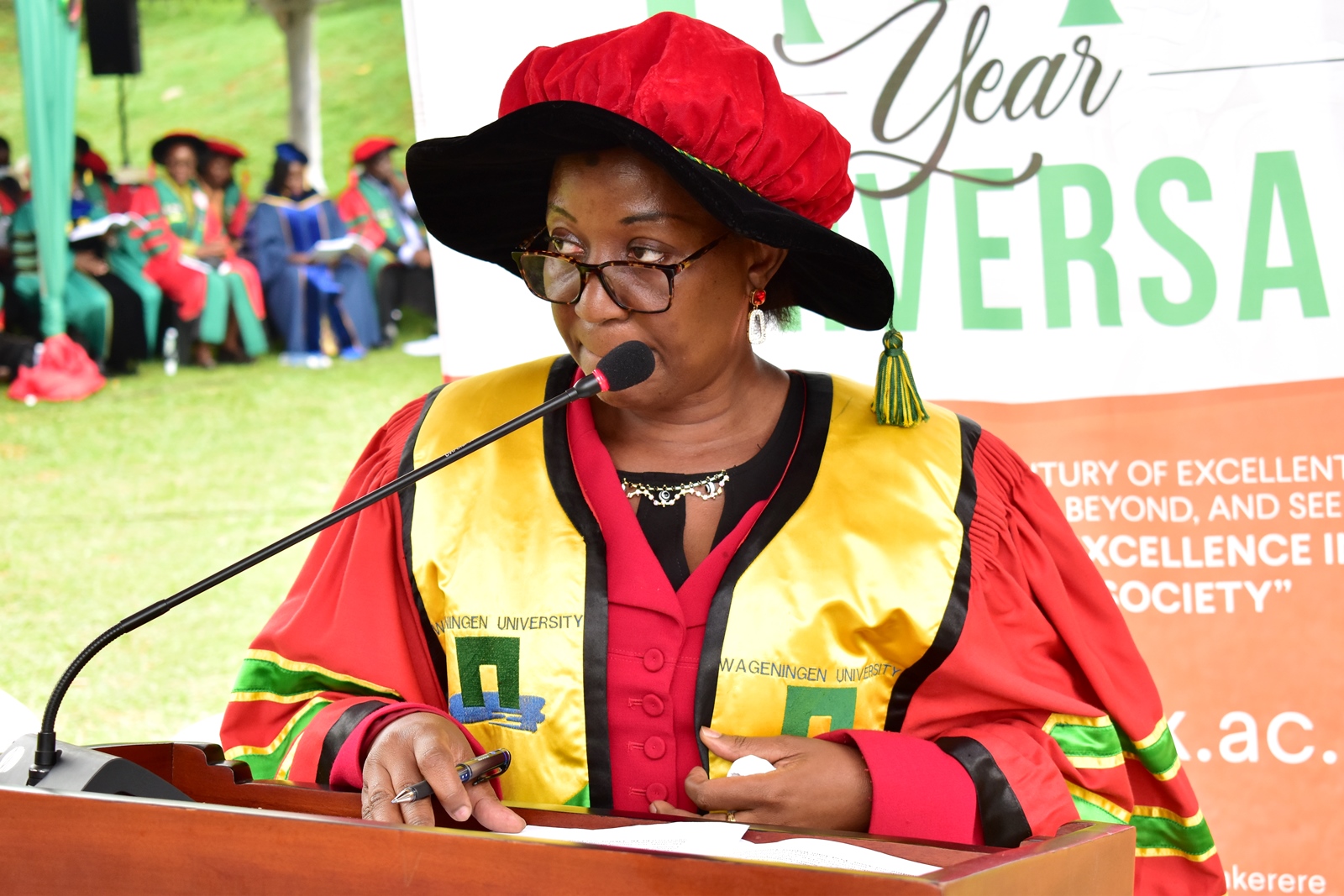
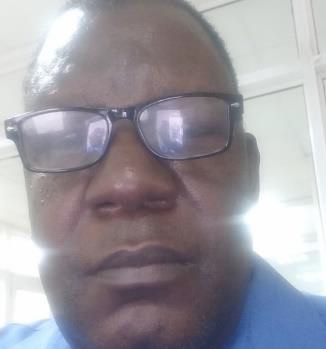
ABEN Charles
Participatory Land use governance and livelihoods in Awoja Watershed, Uganda
Mr. ABEN Charles examined the effects of participatory natural resource governance on livelihoods in Awoja watershed in Uganda. In particular, the study assessed the contribution of local people’s participation to policy implementation. Further, the effects of social, economic and political motivation on actor involvement in the participatory governance were examined. The results suggest that the effective participation was contingent on the motivation of different actors involved in watershed management. This study was funded by DANIDA and was supervised by Dr. Okiror, Prof. Jacob Agea and Dr. EsbernFriis Hansen.
ALEXANDER Noah Ruley Jane
Bioremediation of Petroleum Contaminated Soils using Native plants and their Rhizobacteria in the Sudd regions of South Sudan
Ms. ALEXANDER Noah Ruley Jane’s study was to enhance bioremediation of Petroleum Hydrocarbon-(PHC) Contaminated soils for increased agricultural productivity of the Sudd region of South Sudan. Specially, the study examined the native plant species abundant in petroleum hydrocarbon contaminated soil and optimal rate of cattle manure for enhancing phytoremediation of PHC contaminated soil in the region. In the results, PHC contamination at concentration of 7002 mgkg-1 detected as cultivated land from drilling points, was higher that the critical value of 5000mgkg soil (Sudan) and 5600mgkg (International). In sum, use of plant species namely H. Rufa, T. diversifolia and G. barbadense with 2 tha -1 of cattle-manure greatly improves bioremediation of PHC contaminated soils in the Sudd region of South Sudan. This study was funded by NORHED and was supervised by Dr Alice Amoding and Assoc. Prof John Baptist Tumuhairwe.
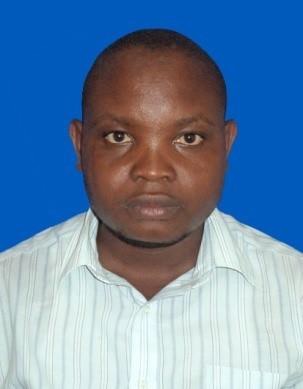
ALFONSE Leonard
The Role of Host Plants, Temperature and Natural Enemies in the Development, Survival and Reproduction of Edible Grasshopper Ruspolia differens (Orthoptera: Tettigoniidae)
Mr. ALFONSE Leonard studied the edible long-horned grasshopper (Ruspolia differens Servile) which is a very important source of food and income in East Africa. The insect is currently obtained from seasonally swarming wild populations which are erratic and declining. His study focused on factors limiting artificial mass rearing of R. differens; these factors include the confusion over the identity of the grasshopper, paucity of information on the natural diets, diseases, and the optimal temperature requirements. He identified edible grasshopper in Uganda as Ruspolia differens (Serville), which is a polyphagous with grasses preference to other plants. The study determined temperatures ranging from 28°C to 32°C as optimum for artificial rearing of R. differens. He further investigated that fungi and bacteria isolated from wild-collected grasshoppers were threats to artificial rearing of the insect. Glaurocara flava was the only identified parasitoid of R. differens. He also found that the inclusion of naturally occurring host plants into artificial diets can improve the survival and reproduction of R. differens. The results from this study can contribute to the development of efficient mass rearing protocols of R. differens. This study was funded by the International Centre of Insect Physiology and Ecology (icipe) and German Academic Exchange Service (DAAD), and supervised by Prof. Samuel Kyamanywa from Makerere University, and Dr. James P. Egonyu and Dr. Sevgan Subramanian from International Centre of Insect Physiology and Ecology (icipe).
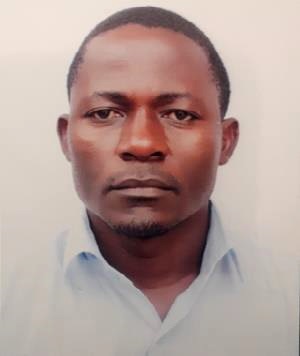
KALANZI Fred
Socio-technological factors influencing smallholder farmers’ adaptation of agroforestry technologies in the eastern highlands of Uganda
Mr. KALANZI Fred studied smallholder farmers’ adaptation of agroforestry technologies in Uganda’s Eastern highlands to establish the rationale for smallholder farmers’ choices, use, and modification of agroforestry technologies. This followed a growing concern that despite the efforts to promote agroforestry technologies, smallholder farmers made contradictory choices and modified technologies in ways perceived by experts to compromise farm productivity and, consequently, food and income security. Results indicated that the technology’s perceived value in addressing the livelihood options of the smallholder farmers was the most critical sociotechnological factor influencing their choices of agroforestry technologies. The study also found that smallholder farmers made several modifications and generated their own practices with anticipated positive outcomes that made the agroforestry technologies more applicable to their unique contexts. The study suggests that while science may have a lot to offer to resource-poor smallholder farmers, their local knowledge and innovations should constitute building blocks in developing economically viable, environmentally compliant and socially acceptable agroforestry technologies. This study was supported by the German Academic Exchange Service (DAAD) through the World Agroforestry Centre (ICRAF) and NARO and supervised by Dr. Prossy Isubikalu, Dr. Florence Birungi Kyazze and Dr. Lawrence J.B. Orikiriza.

KALULE Wamala Stephen
Farmer Learning Behaviours: A Case of the student-to-farmer university outreach of Gulu University in Uganda
Mr. KALULE Wamala Stephen utilized a sample of 283 host farmers of the student-to-famer outreach of Gulu University to examine the influence of psychosocial factors on farmer learning behaviour. The results show that the most important and positive facilitating condition for farmer learning behaviour was faculty supervision support to students. For the motivational factors, satisfaction of relatedness learning needs and formation of learning intentions were the positive and significant predictors farmer learning behaviour. This study funded by RUFORUM and was supervised by Dr. Haroon Sseguya, Assoc Prof. Duncan Ogeng and Dr. Gabriel Karubanga.
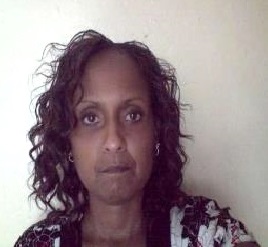
KYALLO Martina
Identification and Characterization of Cassava Mosaic Begomovirus-like viruses Associated with Non Cassava Plants in Kenya
Ms. KYALLO Martina study was on sustainable management of cassava mosaic disease by determining the role non-cassave hosts of Cassava Mosaic Disease (CMD) like viruses and their associated viruses play in the epidemiology of CMD in Kenya. The study identified M. Lutea as a potential alternative host for East African Cassava Mosaic Virus in Uganda revealing the adaptive potential for the virus and expanding our current knowledge of the host range of CMD in Kenya. This study was funded by Bill & Melinda Gates Foundation and was supervised by Dr. Mildred Ochwa Ssemakula and Dr. Robert A. Skilton.
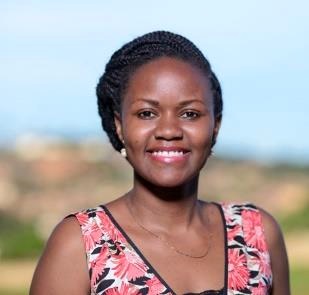
LOGA Dorcas Elizabeth
Enhancing Group Sustainability and Innovativeness of Youth in Agriculture; a Comparative Study of Government and Non-government Interventions in Mid-western Uganda.
Ms. LOGA Dorcas Elizabeth studied how government and Non-Government agencies support youth groups in mid-western Uganda to engage in agriculture. The focus was on discovering the conceptual underpinnings that inform and shape the nature of support, enhancing the sustainability of youth groups, and youth innovativeness. The study revealed that government support is premised on the assumption that the youth lack capital, therefore focusing on capitalization through credit and free input provision; while the NGO support is premised on the assumption that youth lack entrepreneurial skills and extension services, and therefore focused on capacity building. The NGO-supported groups were more likely to be sustainable than the Government supported groups. Amidst numerous challenges, the groups post a higher score of innovativeness with an average innovation index of 0.536 reflecting a high potential for youth to revolutionize agriculture. Strengthening coordination to ensure cooperation and complementarity among interventions can enhance the innovativeness and sustainability of youth groups, and make agriculture more gainful. The study was funded by DAAD and Carnegie Corporation of the New York through RUFORUM; and supervised by Assoc. Professor Paul Kibwika and Dr. Florence Birungi Kyazze.
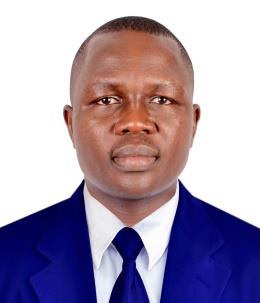
MAWA Christopher
Effects of community-based forest management initiatives on conservation and rural livelihoods in mid-western Uganda
Mr. MAWA Christopher examined the socio-ecological outcomes of community-based forest management initiatives in mid-western Uganda. The study found that positive social and ecological outcomes were simultaneously produced in areas where local community members were either actively co-managing forest resources with the state or were being supported by non-governmental organizations to formally manage and own them. Specifically, the initiatives enhanced community access to legally-sourced forest resources for both subsistence and cash. Additionally, households that had members belonging to conservation groups were more likely to benefit from alternative livelihood schemes promoted by state and non-state actors in the area. However, these alternative livelihood schemes mostly encouraged survival-led as opposed to accumulation-led livelihood diversification pathways. This study was funded by NORHED and was supervised by Prof. David Mwesigye Tumusiime and Assoc. Prof Fred Babweteera.
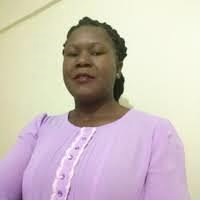
MUKHONGO Wilhem Ruth
Abbuscular Mycorrhizal Fungi for Enhanced Nutrient and Moisture Utilization in Sweet Potato Production
Mr. MUKHONGO Wilhem Ruth investigated the composition and spore abundance of Abbuscular Mycorrhizal Fungi (AMF) in sweet potatoes producing regions in Uganda for local inoculum production. Further, the study sought to determine the efficacy of the native AMF and phosphorus on growth and yield of sweet potatoes. In the findings, the assessment of the composition and spore abundance of AMF in sweet potatoes zones yielded a similarity in the AMF communities with Glomus and Acaulospora species accounting for 38% and 20% respectively. This study was supervised by Assoc. Prof. John Baptist Tumuhairwe, Dr. Peter Ebanyat and Dr. Cargele Masso.
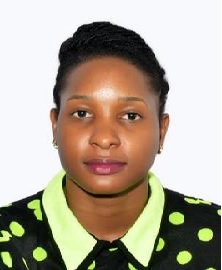
MULINDE Catherine
Climate Adaptation and Crop Productivity in Coffee-Based Farming Systems of Uganda
Ms. MULINDE Catherine focused on determining the most sustainable climate adaptation practices that are likely to increase current and future crop productivity, and mitigate climate vulnerabilities in Arabica and Robusta coffee-based farming systems of Uganda by 2040. She adopted qualitative, quantitative and modeling approaches in assessing climatic-crop suitability, adoption-drivers and effectiveness of major adaptation practices. Coffee and banana were revealed as more vulnerable to climate change than maize and beans in eastern, central and western Uganda; and that agroforestry, inorganic fertilizer, organic manure, mulch, trenches and soil bunds can potentially reduce crop yield losses especially if future climate becomes drier than wetter. The study recommends the promotion of these adaptation practices with an agile extension service considering the diverse adaptation
needs of coffee-farmers rather than ‘one-size-fit-all’ adaptation strategies; identification of efficient on-farm water-draining technologies; and bioengineering of crop varieties adaptive to wetter-conditions across various altitudes. This study was supervised by Prof. Majaliwa
Mwanjalolo and Dr. Revocatus Twinomuhangi, and funded by USAID.

NAKITTO Aisha Musaazi Sebunya
Solanum anguivi Lam. fruits’ nutritional quality and potential effect on type 2 diabetes mellitus.
Ms. NAKITTO Aisha Musaazi Sebunya investigated the morphological characteristics, bioactive compound contents (BCC) and antioxidant activity (AA) of fourteen accessions of Solanum anguivi Lam. The impact of various ripeness stages and thermal treatments on the BCC and AA of Solanum anguivi Lam. fruits (SALF) was determined, where the unripe stage and boiling exhibited the highest AA. Further, the potential of dietary SALF to prevent and manage type 2 diabetes mellitus (T2DM)-like phenotypes was investigated using the fruit fly, Drosophila melanogaster (D. melanogaster) model organism. D. melanogaster has been previously shown to develop a T2DM-like phenotype upon high-sugar diet (HSD) intake. The study showed for the first time that dietary SALF lowers HSD-induced glucose levels in D. melanogaster, which was not mediated through an up-regulation of central genes (Srl, dIlp3 and dIlp6) of the fly’s energy metabolism. Simultaneously, dietary SALF increased the flies’ survival, thus suggesting a protective effect of SALF against premature death associated with a T2DM-like phenotype. Dietary SALF may therefore help prevent and manage T2DM in humans. This study was funded by the DAAD and FTBIC and was supervised by Prof. John Muyonga, Prof. Anika Wagner and Assoc. Prof Yusuf Byaruhanga.
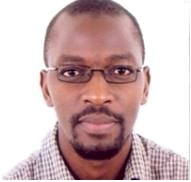
NDAULA Sulaiman
Psychosocial factors in rural smallholder farmers’ decision to accept orange-fleshed sweet potato in Uganda
Mr. NDAULA Sulaiman studied the acceptance of orange-fleshed sweet potato (OFSP) within households that already grow White-fleshed sweet potato (WFSP). With vitamin A deficiency enduring as a major public health concern in many developing countries, OFSP continues to be promoted as a food-based alleviation strategy for the deficiency. This study sought to enhance understanding of the role of rural smallholder farmers’ socio-cognitive contexts in OFSP acceptance in Uganda. The study revealed that farmers at the various stages of the OFSP cultivation process (under consideration, trial, or maintenance) differ in the belief sets they held about OFSP relative to the WFSP sweet potato varieties. Also, sustained OFSP cultivation was enhanced by social pressure, farmers’ valuation of their capability to cultivate OFSP as compared to cultivating WFSP and health-related risk perceptions. Through compliance and conformity to peer pressure, farmers created a cycle of low cultivation intensity that led to limited access to vines, low appreciation of relative advantage of OFSP over WFSP and the attendant cultivation defections. This study points to a cardinal role for processes that create supportive social and cognitive environments for the acceptance of bio-fortified technologies such as the orange-fleshed sweet potato. This study was funded by DAAD and supervised by Dr. Frank Matsiko, Dr. Richard Miiro, and Dr. Haroon Sseguya.
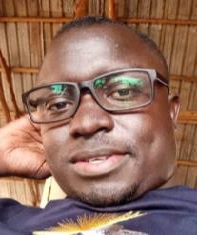
OBUA Tonny
Genetic Improvement of Nutritional Traits and Yield of Tropical Soybean in Uganda
Mr. OBUA Tonny investigated the genetic diversity and population structure of 89 tropical soybean germplasm, and determined the variability of nutritional traits of 52 soybean core collections from diverse sources. He further conducted a genome-wide association study based on 92 soybean genotypes, as well as determination of environmental effect on protein content and yield in soybean. The results showed that the genetic diversity among the studied germplasm was low, and the phylogenetic tree and Principal Component Analysis grouped the 89 genotypes into three major clusters. The low genetic diversity could be attributed to the cleistogomous nature of soybean and the sample of genotypes used that were mainly released varieties and advanced breeding lines; that have been genetically fixed at all loci in regard to general consumer preferences after many cycles of selections. Low diversity in the studied germplasm pool is a reflection of genetic erosion of the existing germplasm pool, which calls for widening of the current germpalsm base. The study further identified several soybean genotypes that protein and oil content above the reported averages. Total oil content varied significantly between origins with genotypes from Zimbabwe showing the highest mean of 20.13% while those from Taiwan had the lowest mean of 18.3%. The study was funded by Soybean Africa Limited, Makerere University Center for Soybean Improvement and Development, Biosciences Eastern and Central Africa – International Livestock Research Institute Hub; and was supervised by Prof. Phinehas Tukamuhabwa and Dr. Thomas L. Odong.
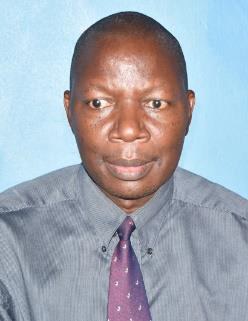
OCHIENG Hannington
Biological assessment of River Aturukuku in Tororo, Uganda: a tropical river with potential environmental threats from its catchment
Mr. OCHIENG Hannington undertook a biological assessment of River Aturukuku in order to contribute towards its conservation and sustainable utilisation by the riparian communities. His research compared the utility of two macroinvertebrate based Biological Monitoring Working Party indices, from England (temperate region) and Costa Rica (tropical region) for assessing water quality, and explored the assemblages of benthic macroinvertebrates and diatoms along River Aturukuku. His research showed that the two foreign biomonitoring indices could not separate sites based on pollution gradients, attributable to biogeographical differences in environmental conditions and pollution tolerances among macroinvertebrates. The diversity of benthic macroinvertebrates and diatoms in the river was low, with pollution-tolerant taxa dominating. The development of indigenous biotic index for Uganda and specific mitigation measures for conservation of the entire river for sustainable utilisation is recommended. The study was funded by the National Geographic Society and was supervised by Prof. James Okot-Okumu and Dr. Robinson Odong.
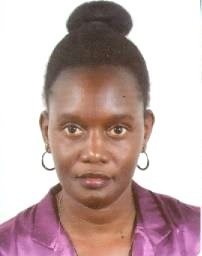
SYOFUNA Agatha
Prevalence and impact of stem canker diseases on Eucalyptus grandis and selected Hybrid clones in Uganda
Ms. SYOFUNA Agatha studied the prevalence and impact of stem canker diseases on Eucalyptus grandis and selected Hybrid clones in Uganda. This was based on the background that there is a drive for re-afforestation and a high timber demand in the country, both of which are being solved by extensive plantation development. The study revealed that Eucalyptus plantations are threatened by Botryosphaeria and Teratosphaeria canker diseases throughout the Country mostly in the Central, Eastern and Albertine regions. Five species of Botryosphaeriaceae were identified based on multi-locus phylogenies (ITS and β-tubulin). Pathogenicity tests using species of Botrosphaeriaceae and Teratosphaeria revealed variation in susceptibility of Eucalyptus grandis and selected hybrid clones, suggesting that disease-tolerant Eucalyptus genotypes could be selected for disease management. Furthermore, an assessment of the anatomical, physical, and mechanical properties, revealed brittle failure and high shrinkage in wood from diseased trees, indicating that it is not suitable for some construction applications and should be used with caution. The study was funded by African Development Bank and DAAD, and supervised by Dr Grace Nakabonge and Prof. Abwoli Y. Banana.
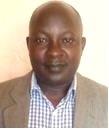
TURYAHIKAYO Willy
Network governance dynamics that influence the generation and implementation of innovative activities within the Agricultural Innovation Platforms.
Mr. TURYAHIKAYO Willy investigated the network governance dynamics that influence the generation and implementation of innovative activities within the Agricultural Innovation Platforms. The study findings showed that the level and structure of interactions have got a profound effect on generation and implementation of new ideas within the agricultural innovation platforms. However, owing to the informal nature of networks, this study revealed stringent collective sanctions in the IPs can negatively impact the innovative activities. The study recommends increased actor interactions in terms of duration and frequency of interactions between actors within the platforms. This study was funded by the German Academic Exchange Service (DAAD), and supervised by Dr. Frank B. Matsiko, Dr. John J. Okiror, Dr. Richard F. Miiro and Prof. Jon Hanf.
Browse Citations by College below:
< Director’s Message | CAES | CoBAMS | CoCIS | CEES | CEDAT | CHS | CHUSS | CoNAS | CoVAB | LAW | MUBS >
You may like
-


Over 9,200 to graduate at Makerere University’s 76th Graduation
-


76th Graduation Highlights
-


Uganda Martyrs Namugongo Students Turn Organic Waste into Soap in an Innovative School Project on Sustainable Waste Management
-
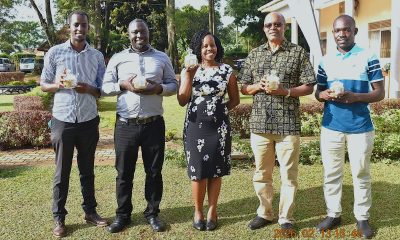

Makerere University Researchers Release New Soybean Variety, MakSoy 7N
-


Strengthening Global Partnerships to Advance Research, Innovation, and Graduate Training: Makerere University Hosts Delegation from the University of Warwick
-


Olivia Nakisita and the Quiet Urgency of Adolescent Refugee Health
Agriculture & Environment
Mak hosts First African Symposium on Natural Capital Accounting and Climate-Sensitive Macroeconomic Modelling
Published
5 days agoon
February 20, 2026
African economies are increasingly exposed to climate-related shocks that threaten development gains, fiscal sustainability, and macroeconomic stability. From extreme weather events and biodiversity loss to the depletion of natural capital, climate risks are reshaping economic realities across the continent. Yet many macroeconomic frameworks used in public finance and planning continue to overlook climate and nature-related risks and the long-term benefits of resilience and adaptation investments.
To address this emerging reality, over 250 participants from Africa, Europe and beyond, convened at Makerere University – Kampala, on the 12th and 13th of February 2026, to participate in the First African Symposium on Natural Capital Accounting and Climate-Sensitive Macroeconomic Modelling.
Following the theme, “Climate-Sensitive Macroeconomics: Rethinking Growth in Africa’s Natural Resource Base, the hybrid symposium organized by Makerere University through the Centre of Excellence for Africa Climate-Sensitive Macroeconomic Modelling (CEACM) within the School of Economics, under the College of Business and Management Sciences (CoBAMS), the Environment for Development Initiative (EfD), and the Ministry of Finance, Planning and Economic Development (MoFPED) in Uganda, brought onboard ministers, leading economists and planners, researchers, policy makers, the academia, development partners, climate change experts and the media.
The Symposium being the first of its kind on the continent, reflected Africa’s growing determination to work collectively in confronting shared development challenges, building on recent momentum such as the formation of Pan-African Finance Ministers Forum for Climate Action (PAFMCA).
Featuring speeches and presentations from notable speakers and partners, a keynote address on Natura Capital Accounting and Climate Change Nexus in Africa and their impact on Fiscal Policy, panel discussions, expert opinions, and exhibition kiosks (World Café), the symposium presented a platform to strengthen Africa’s analytical and institutional capacity to integrate climate and natural capital considerations into macroeconomic and fiscal policy.
Vice Chancellor underscores the role of universities
Welcoming the delegates to Makerere University, the Vice Chancellor-Prof. Barnabas Nawangwe emphasized that universities must lead innovation and collaborative research efforts to support collective climate change mitigation across the continent.
In the same vein, he advocated for strong collaboration between universities in Africa and government Ministries. “Makerere’s collaboration with the Ministry of Finance, Planning and Economic Development, stands as a shining example of how academia and government can strengthen economic management,” he said.

Prof. Nawangwe revealed that the collaboration between Makerere University and the Ministry, has strengthened macroeconomic modelling, fiscal policy analysis, and technical capacity within government. In addition, the partnership led to the establishment of the Centre of Excellence for Africa Climate-Sensitive Macroeconomic Modelling, bridging academic scholarship with real-world policy application.
“We have jointly established the Centre of Excellence for Africa Climate-Sensitive Macroeconomic Modelling. The Centre (established in August 2025) is anchored within the School of Economics in the Department of Policy and Development Economics, under the Master of Science in Economic Policy and Investment Modelling, a program jointly facilitated by Makerere University, the Ministry of Finance, Planning and Economic Development and the Bank of Uganda,” he mentioned.
Climate and Economic transformation are inseparable
The Vice Chancellor highlighted the critical intersection between economic transformation and environmental sustainability, noting that economies in Africa, heavily dependent on natural resources, face unprecedented pressures from climate shocks, biodiversity loss, and environmental degradation. Convinced that economic growth cannot be pursued in isolation from climate and environmental realities, he stressed the importance of integrating natural capital accounting and climate considerations into national development strategies.
Prof. Nawangwe advocated for shared responsibility of universities, research institutions, and policymakers to develop innovative analytical tools, responsive policy frameworks, and strong institutional capacities that promote sustainable growth while safeguarding environmental assets for future generations.
The Vice Chancellor commended UN PAGE and the Global Green Growth Institute (GGGI) for funding the symposium, as well as, other stakeholders namely the European Union and the Coalition of Finance Ministers for Climate Action (CoFMCA), Ministry of Water and Environment (MoWE), National Planning Authority (NPA), Uganda Bureau of Statistics (UBOS), the National Environment Management Authority (NEMA) for being reliable partners.
Integrating Climate into Fiscal Policy
During the opening ceremony, the Minister of Finance, Planning and Economic Development, Hon. Matia Kasaija underscored the urgency of embedding climate considerations into economic planning.
“As Ministers of Finance, we are often confronted with difficult trade-offs. Our task is to balance the needs of today with sustainability for future generations,” said Hon. Kasaija, in a speech read by Hon. Henry Musasizi, the Minister of State for Finance (General Duties).

The Minister guided that traditional macroeconomic models focusing only on growth, inflation, and fiscal balance are inadequate in an era of climate shocks. He affirmed that African economies are facing interconnected challenges which directly impact economic growth. He stressed that traditional macroeconomic frameworks must evolve to systematically incorporate environmental degradation and climate shocks, whose consequences can no longer be ignored in policy analysis.
“For countries such as Uganda, whose development prospects are closely linked to natural resources and the climate-sensitive sectors, these challenges are not abstract. They affect livelihoods, public finances and long-term economic resilience,” he mentioned.
The Minister emphasized that natural capital accounting and climate-sensitive macroeconomic modelling are vital for valuing natural assets, assessing environmental costs, and guiding sound investment decisions.
Protecting Africa’s Natural Capital
Hon. Beatrice Atim Anywar, Minister of State for Environment, emphasized the urgent need to protect Africa’s ecosystems. “Africa stands at a defining crossroads. Our economies remain anchored in natural capital—forests, water resources, biodiversity, land, and ecosystems—which sustain life, generate fiscal revenue, and underpin development,” she said.
She warned that climate-related shocks are already undermining growth and public investment. “Floods, droughts, land degradation, biodiversity loss, and water stress are no longer distant risks. They are present realities, already affecting productivity and macroeconomic stability,” she said.
She emphasized the need for improved economic models that account for environmental and climate risks: “Traditional macroeconomic frameworks have not adequately captured climate risks or the long-term economic benefits of resilience and adaptation. This limits our ability to make informed policy decisions as Africa pursues economic transformation, energy security, and fiscal stability,” she stated.
Hon. Anywar highlighted collaboration with GIZ, Makerere University, and government ministries, which led to the development of the MONCAP (Model for Natural Capital Policy Assessment). “This tool is being used to assess natural capital assets for climate change, energy transition, and their linkages to the macroeconomy. It supports budgeting by estimating the cost of depleted natural capital assets,” she said.
“Water security, forest conservation, ecosystem restoration, and climate adaptation are not costs. They are investments in Uganda’s long-term economic stability, productivity, and prosperity.”
Stakeholders urged to transform climate threats into opportunities
Adam Sparre Spliid, the Deputy Head of Mission, Danish Embassy said: “Integrating climate risk and natural capital into our macroeconomics frameworks is not only academic exercise, it is a massive de-risking strategy for private investment. By bridging the gap between government policy and planning, academia and research, and the private markets, we transform climate threats into tangible opportunities.”
Sustainability includes youth, jobs and human well-being
Dr. Steven Stone, Chair of the UN PAGE Management Board, emphasized that sustainability extends beyond the environment to encompass youth, jobs, economic growth, and human well-being. “While the environment is Africa’s foundational source of wealth, sustainable development requires balancing ecological stewardship with economic progress, including income and employment for the youth which are critical priorities for countries such as Uganda.”
Dr. Stone highlighted that UN PAGE, originating from the Rio+20 Conference, supports climate-sensitive economic policy in Africa, emphasizing that dialogue, scenario-building, cross-sector collaboration, and strong partnerships are key to advancing sustainable, inclusive, and climate-resilient development.
Africa’s Wealth Declining
In the keynote address titled, Natural Capital Accounting and Climate Change Nexus in Africa and their Impact on Fiscal Policy, Paul Jonathan Martin, Manager of Environmental Operations at the World Bank for Eastern and Southern Africa, and a specialist with over 30 years in climate and natural resources, warned that Africa’s overall wealth is under threat due to declining renewable natural capital.
“Produced capital has increased by 20%, human capital by a third, but renewable capital has declined by 30%,” Martin said. “When combined, Africa’s overall wealth trajectory has been weakening since 2010.”
He stressed that natural resources must be treated as economic assets requiring systematic accounting: “Africa’s rich natural resources are fundamental for sustainable development,” he said.
Citing examples from Ethiopia and Kenya, he highlighted successful integration of natural capital into public investment and budget decisions. “In Ethiopia, there are payments for ecosystems and investment prioritization tools. In Kenya, natural capital accounting integration into budgets has strengthened public investments. Climate change has deep, cascading effects across sectors, but Africa has major potential to lead climate solutions,” he said.

Martin also highlighted the economic benefits of climate adaptation: “From 2020–2050, the cumulative effect of adaptation on Uganda’s GDP is positive. Without action, under a dry/hot climate future, GDP could significantly deviate from projected growth paths.”
Drawing on insights from over 70 country climate and development reports produced by the World Bank, the keynote speaker highlighted the profound macroeconomic impacts of climate change across Africa. He stressed the importance of integrating climate and natural capital into macroeconomic planning. He noted that Africa’s forests, water systems, and biodiversity are vital for sustainable development but face growing threats from climate change, environmental degradation, and climate-related disasters that undermine productivity, public investment, and economic stability.
He observed that traditional macroeconomic models often fail to capture the value of natural assets and regulating ecosystem services, which are critical to both economic stability and resilience but are largely excluded from GDP calculations.
Africa-Led Solutions
Prof. Edward Bbaale, Principal, College of Business and Management Sciences (CoBAMS), stressed the importance of developing African-led solutions. “We need to champion the Africa-led model. We need approaches that fit our unique context. Africa is not here to take in other frameworks blindly,” he said.
By supporting research, training, policy dialogue and modelling innovation, the Centre of Excellence for Africa Climate Sensitive Macroeconomic Modelling (CEACM) positions Makerere University as a regional hub for advancing climate-sensitive macroeconomic policy across Africa.
He highlighted CEACM’s capacity-building programs: “Our goal is to ensure African Ministries of Finance have home-grown expertise to integrate climate and natural capital considerations into fiscal and macroeconomic policy. This is critical for long-term resilience and sustainable development,” he said.
The Principal explained that establishment of independent research centres enables Makerere University to go beyond traditional academic instruction and focus deeply on societal challenges, particularly those related to climate change, environmental degradation, and biodiversity loss.

He reported that the Centre of Excellence for Africa Climate-Sensitive Macroeconomic Modelling is structured to advance methodological innovation, develop new data systems, and strengthen climate-sensitive macroeconomic tools that are tailored to the African context.
MONCAP Model for Policy Assessment
Dr. Peter Babyenda, a member of faculty at CoBAMS, demonstrated MONCAP (Model for Natural Capital Policy Assessment), which integrates climate and natural capital variables into fiscal and macroeconomic planning.
“MONCAP allows policymakers to estimate the economic cost of depleting natural assets such as forests, wetlands, and water resources. It helps simulate policy options and determine how investments in natural capital yield long-term benefits,” Babyenda said. “We came up with this model to aid the Ministry of Water and Environment. This model is open—you can extend it,” he added.

He highlighted capacity-building initiatives, including short courses and the Master of Science in Macroeconomic and Investment Modelling, designed to train economists to incorporate natural capital and climate into policy planning.
International Perspectives
Sweetman Liam, Ireland’s Finance Minister, highlighted the economic value of ecosystems: “There is a deeper value of landscapes in flood prevention and biodiversity. Decision-making was informed, and people started understanding economic value,” he said.
Prof. Chukwuone Nnaemeka of the University of Nigeria emphasized collaboration with national statistical agencies: “We coordinate with the National Bureau of Statistics to develop natural capital accounting metrics. Increase the use of Natural Capital Accounting in decision-making,” he stated.
Technical and Parallel Sessions
The afternoon session featured three parallel sessions focusing on Natural Capital Accounting Methodologies and Best Practices, Climate-Sensitive Fiscal and Economic Modelling, and Natural Capital Accounting and Model Uptake and Use.
Drawing on diverse expertise, the panels highlighted innovative approaches and demonstrated that natural capital is not an environmental afterthought, but a central pillar of sustainable economic and policy planning.
The first day of the African Symposium drew to a close with interactive exhibitions at the World Café, where case studies and practical demonstrations highlighted innovative approaches to integrating climate and natural capital into economic planning. Participants actively engaged in discussions and networking, forging collaborations that promise to advance climate-sensitive fiscal and development strategies across Africa, setting a strong and optimistic tone for the days ahead.
Agriculture & Environment
Uganda Martyrs Namugongo Students Turn Organic Waste into Soap in an Innovative School Project on Sustainable Waste Management
Published
5 days agoon
February 20, 2026
*****The students were supervised by researchers from the College of Agricultural and Environmental Sciences (CAES) at Makerere University, led by Prof. Fred Kabi.
The garbage challenge
With urbanization rates rising rapidly across Uganda, municipal solid garbage generation in the country’s cities is projected to increase by more than 40 percent by 2050. The growing burden of unmanaged garbage, particularly organic garbage, continues to pose environmental and public health risks, underscoring the urgent need for innovative and sustainable solutions.
It is against this backdrop that Senior Four students of Uganda Martyrs Secondary School Namugongo undertook a project to demonstrate how local market garbage challenges can be transformed into opportunities for sustainable development.

Addressing the garbage Challenge
As part of their academic project under the competence-based curriculum, the students were tasked with identifying real-world challenges within their communities and developing practical solutions using locally available resources. Through research and field observations, they identified poor garbage management, particularly the accumulation of organic waste at major dumping sites such as Kiteezi Landfill, as a critical issue.
At these sites, unsorted solid garbage often accumulates uncontrollably, sometimes leading to collapses that pose serious environmental and public health risks including water contamination by leachates, persistent foul odors, and disease outbreaks.

Rather than solely viewing solid market garbage as a problem, the students recognized its untapped potential within the biodegradable fraction of market garbage streams. Their innovative solution was to convert organic solid market waste (biodegradable garbage) into an industrial raw material for soap production by utilizing saprophagous Black Soldier Fly larvae (BSFL) to accumulate lipids and applying the scientific process of saponification.
Makerere University Support to the project
The students’ project was supervised by Prof. Fred Kabi together with technicians from the College of Agricultural and Environmental Sciences (CAES) at Makerere University. Prof. Kabi and his team have been actively researching on Black Soldier Fly Larvae (BSFL) as a bio-waste management technology capable of converting biodegradable solid municipal garbage and farm waste into valuable by-products such as organic fertilizers, animal feeds, soap, and biodiesel.
Working in collaboration with Ento Organic Farm Uganda Ltd, the researchers have demonstrated how insect-based waste conversion systems can support a circular economy by transforming biodegradable waste into industrial raw materials.

According to Prof. Kabi, the five young garbage entrepreneurs (students) began their project by collecting information on household garbage management practices. After analyzing the data, they engaged stakeholders along the garbage value chain to brainstorm all-inclusive, source-based waste management strategies.
“The students developed a solution that links efficient waste management at garbage generation source to support production of organic fertilizer, insect protein for animal feeds, and soap, which is only possible with biodegradable garbage,” Prof. Kabi explained. “This approach of the Competence Based Curriculum (CBC) for lower secondary schools supports the concept of taking Makerere University to the community of budding scientists while promoting sustainable community development through a circular economy.”
From Market Waste to Soap Bars
The Team leader, Ms. Ivy Stephanie Kitali explained the step-by-step scientific process behind the project. The students began by collecting organic waste from local markets, which was then shredded to prepare it for the larvae as a substrate. “Black Soldier Fly larvae were then introduced to the prepared waste. The larvae efficiently consumed the organic matter, greatly reducing its volume while accumulating lipids (fats) in their bodies. After maturation, we separated the larvae from the remaining waste, euthanized through blanching and dried it. Oil was then extracted from the dried larvae using ethanol as a solvent. This lipid-rich oil became the primary ingredient or raw material for soap production. To enhance the final product, the larvae oil was blended with minute quantity of sunflower oil before adding sodium hydroxide, initiating saponification, the chemical reaction that transforms fats and oils into soap,” she explained. The process ultimately yielded usable bars of soap derived entirely from what had once been discarded as unwanted market waste/garbage.

Building Skills and Sustainable Innovation
Beyond producing soap, the project provided students with hands-on training in scientific research, waste management techniques, bio-chemistry, and sustainable innovation. They gained practical exposure to insect-based biotechnology and learned how environmental challenges can be addressed through science-driven by entrepreneurship.
Agriculture & Environment
Makerere University Researchers Release New Soybean Variety, MakSoy 7N
Published
6 days agoon
February 19, 2026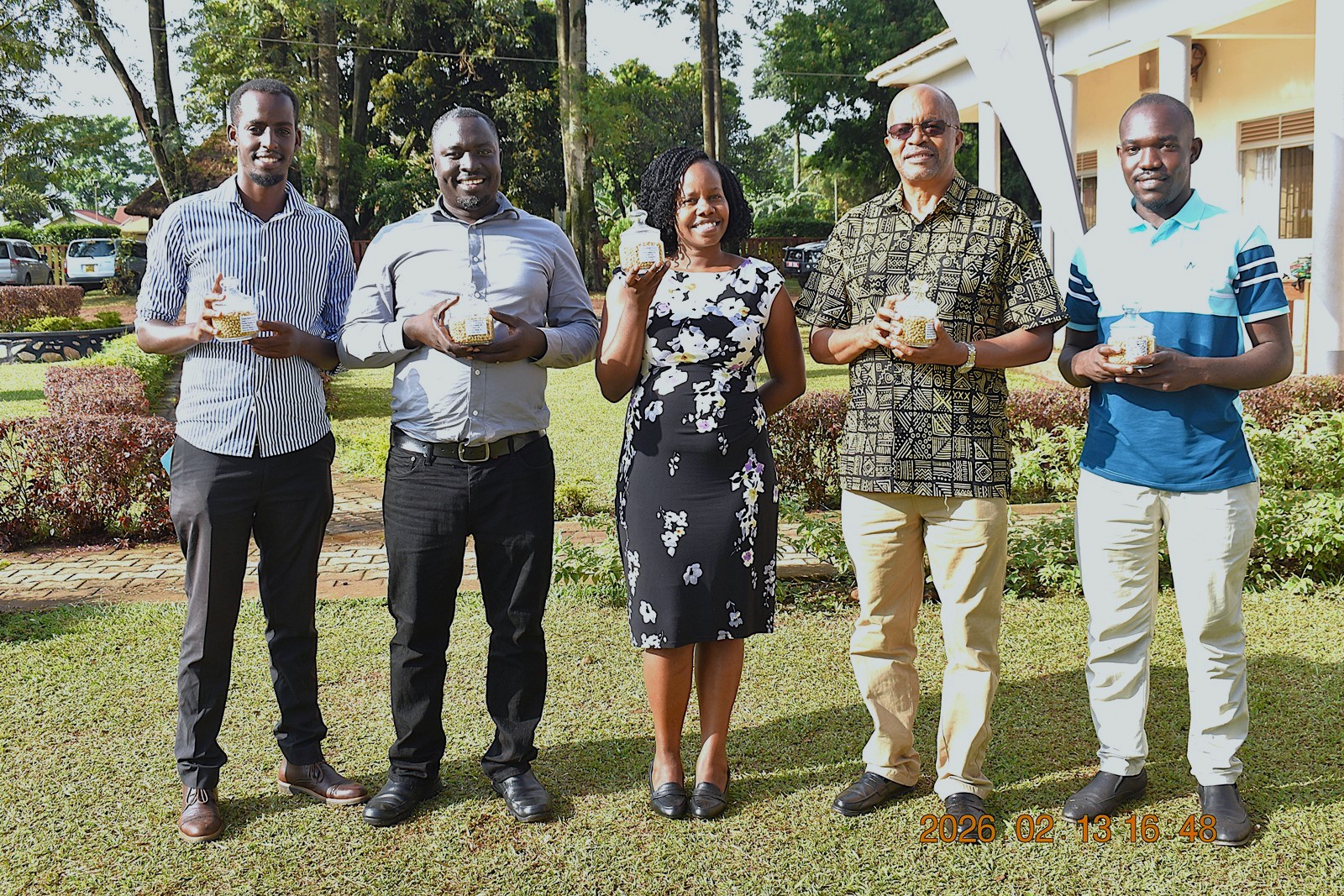
The National Variety Release Committee (NVRC) has officially approved Maksoy 7N, the latest soybean variety developed by the Makerere University Centre for Soybean Improvement and Development (MAKCSID) in the Department of Crop Science and Horticulture, College of Agricultural and Environmental Sciences at Makerere University. The approval was announced during the committee’s 47th meeting at the National Agricultural Research Laboratories (NARL) in Kawanda on 13th February 2026.
The NVRC, chaired by Dr. Joseph Kikafunda, is composed of stakeholders from the Ministry of Agriculture, Animal Industry, and Fisheries (MAAIF), research institutes, seed regulatory agencies, farmers’ organizations, and private seed companies. The committee evaluates new crop varieties for performance and traits before official release, helping to enhance national food security.
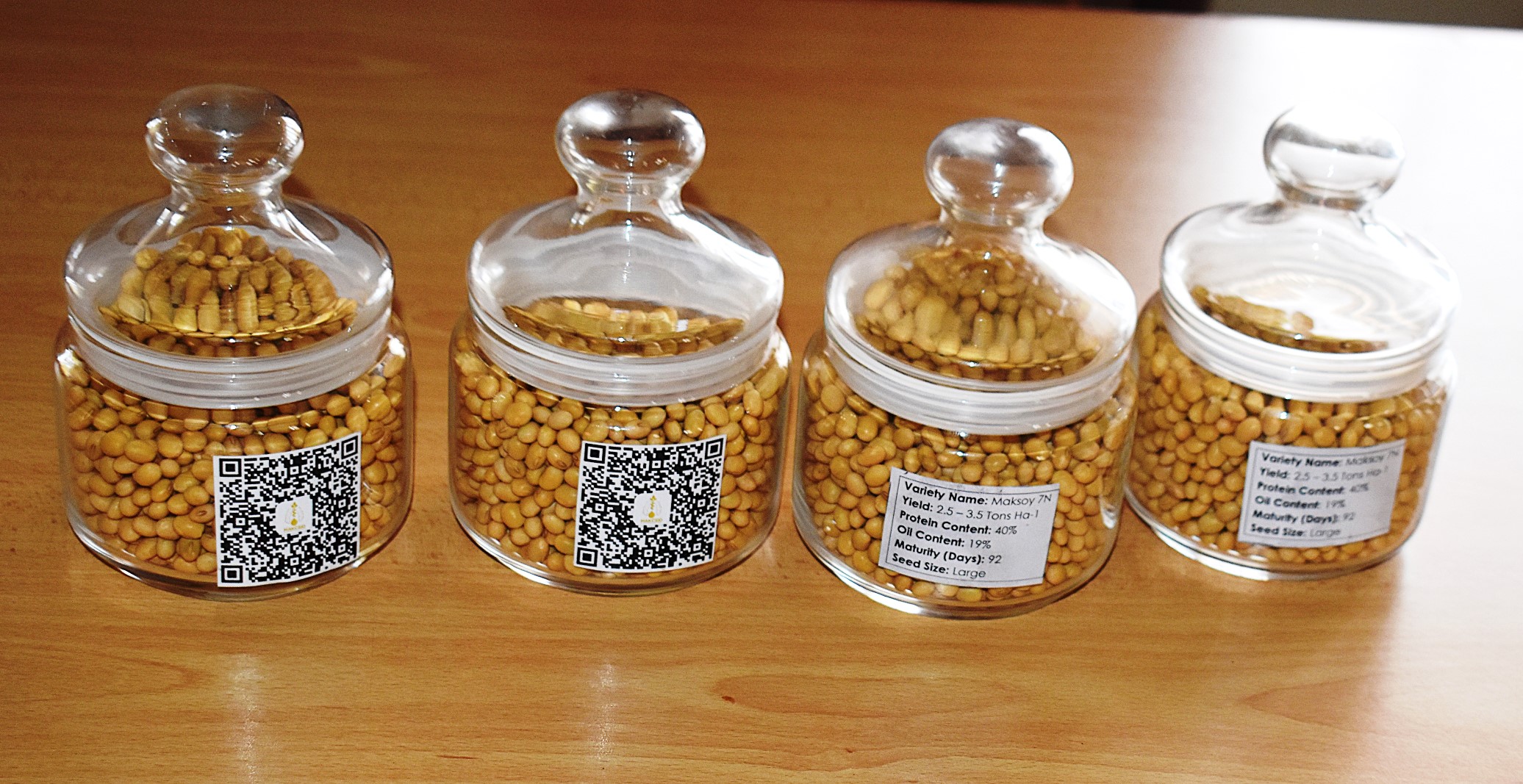
Rigorous Testing Confirms Superior Performance
MakSoy 7N, a cross between 6N and SG underwent extensive Distinctive, Uniformity, and Stability (DUS) testing across multiple seasons and locations in Uganda, including Kabanyolo (Wakiso), Nakabango (Jinja), Ngetta ZARDI (Lira), Abi ZARDI (Arua), Bulindi ZARDI (Hoima), and Mubuku Irrigation Scheme (Kasese).
The trials were conducted in accordance with the Seeds and Plant Act, Cap. 41 and the UPOV guidelines.
Results showed that the variety is clearly distinct from its closest reference, Maksoy 3N, in pod color, stem hair, and seed hilum, with uniformity meeting the 1% off-type standard, and stability confirmed across locations and seasons. On-farm trials were conducted to test performance under farmers’ management and to determine farmer preferences. Following these findings, the National Seed Certification Service (NSCS) recommended Maksoy 7N for release, providing farmers with a high-yielding and soybean rust-resistant variety.
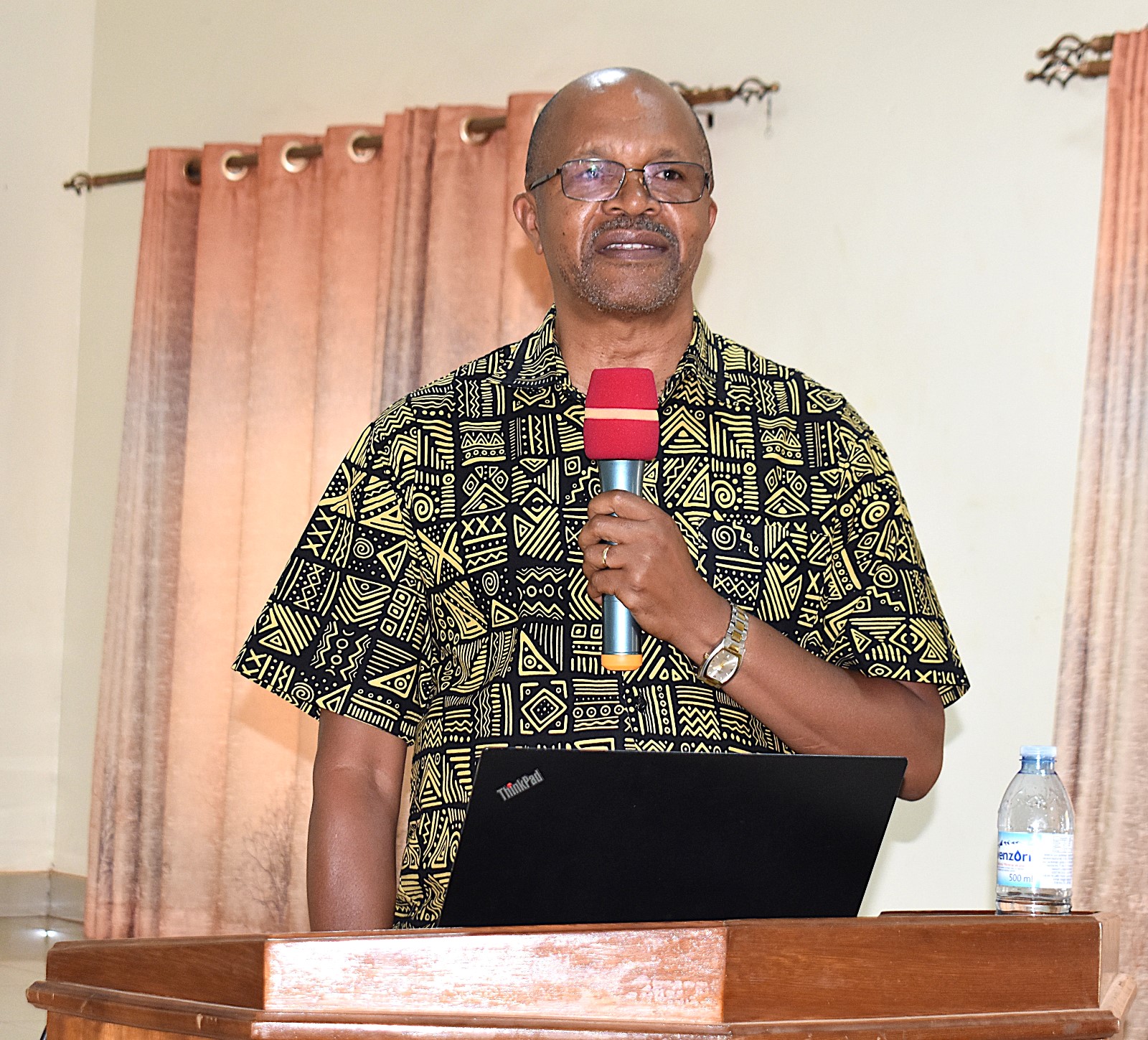
Key Reasons Behind the Development of MakSoy 7N
Soybean plays a critical role in nutrition and income generation, offering 40% protein and 20% oil. It is used in human food, livestock feed, agro-industrial applications, and soil fertility improvement, supporting climate-smart agriculture and reducing reliance on synthetic fertilizers. It also breaks pests life cycle if included in the cropping system.
Maksoy 7N was developed to address yield stagnation, rising disease pressure (including soybean rust), and growing national and regional demand for high-performing varieties. Advanced yield trials across six locations – Kabanyolo (Central), Nakabango (Eastern), Bulindi (Mid-West), Ngetta (Northern), Abi (West Nile), and Mubuku (Western) – demonstrated the variety’s strong performance in both multi-environment trials and participatory on-farm evaluations.
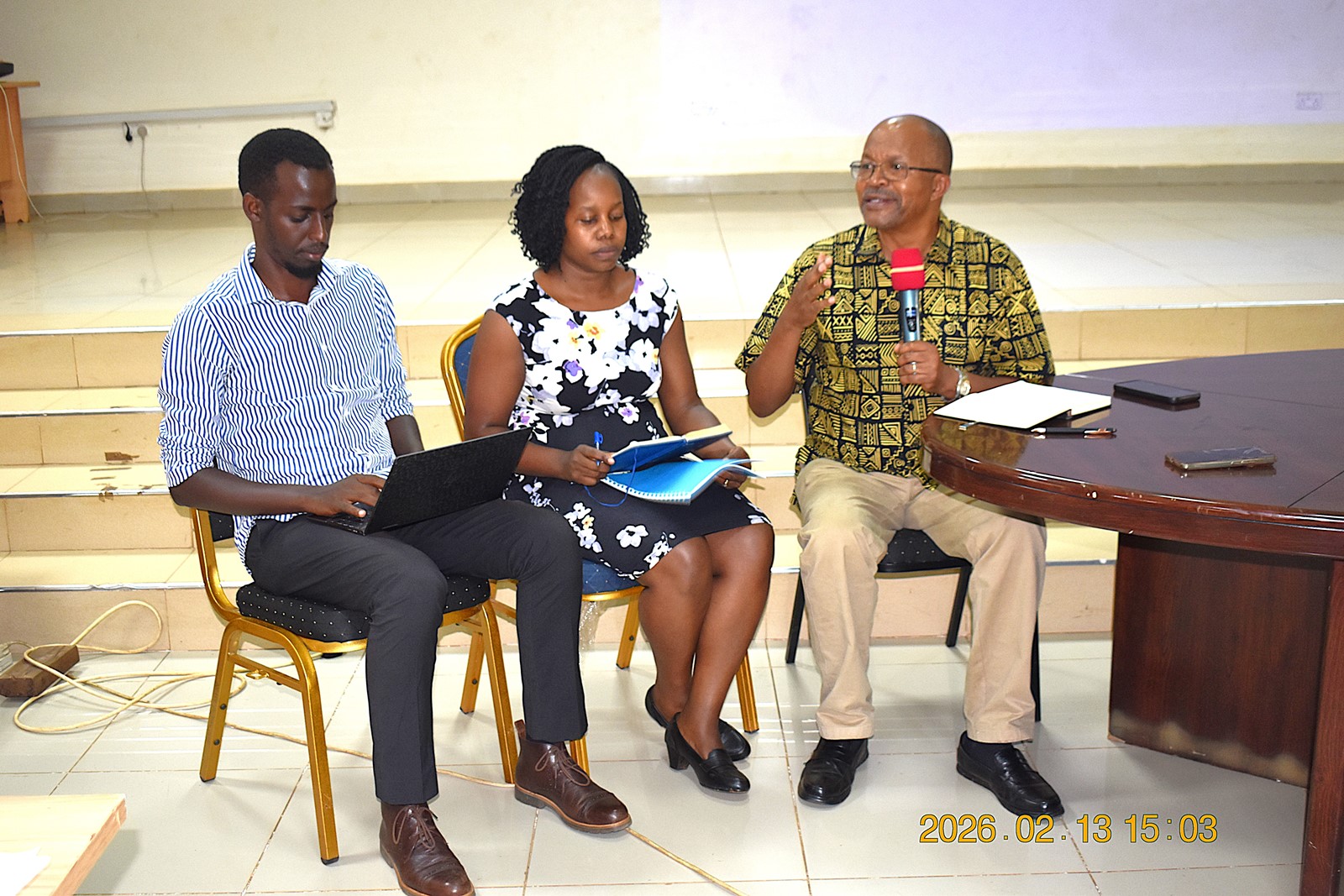
According to Prof. Phinehas Tukamuhabwa, Principal Investigator and Director of MAKCSID, Maksoy 7N demonstrates strong resistance to soybean rust and outstanding agronomic performance. The variety yields between 3-3.5 tons per hectare and matures in approximately three months. Maksoy 7N is expected to enhance national soybean productivity, increase smallholder farmer incomes, and strengthen Uganda’s soybean value chain.
Maksoy 7N joins six previously released high-yielding varieties (Maksoy 1N–6N). Impact studies by the Vegetable Oil Development Project (VODP) reveal that 93% of Ugandan soybean farmers plant Maksoy soybean varieties.
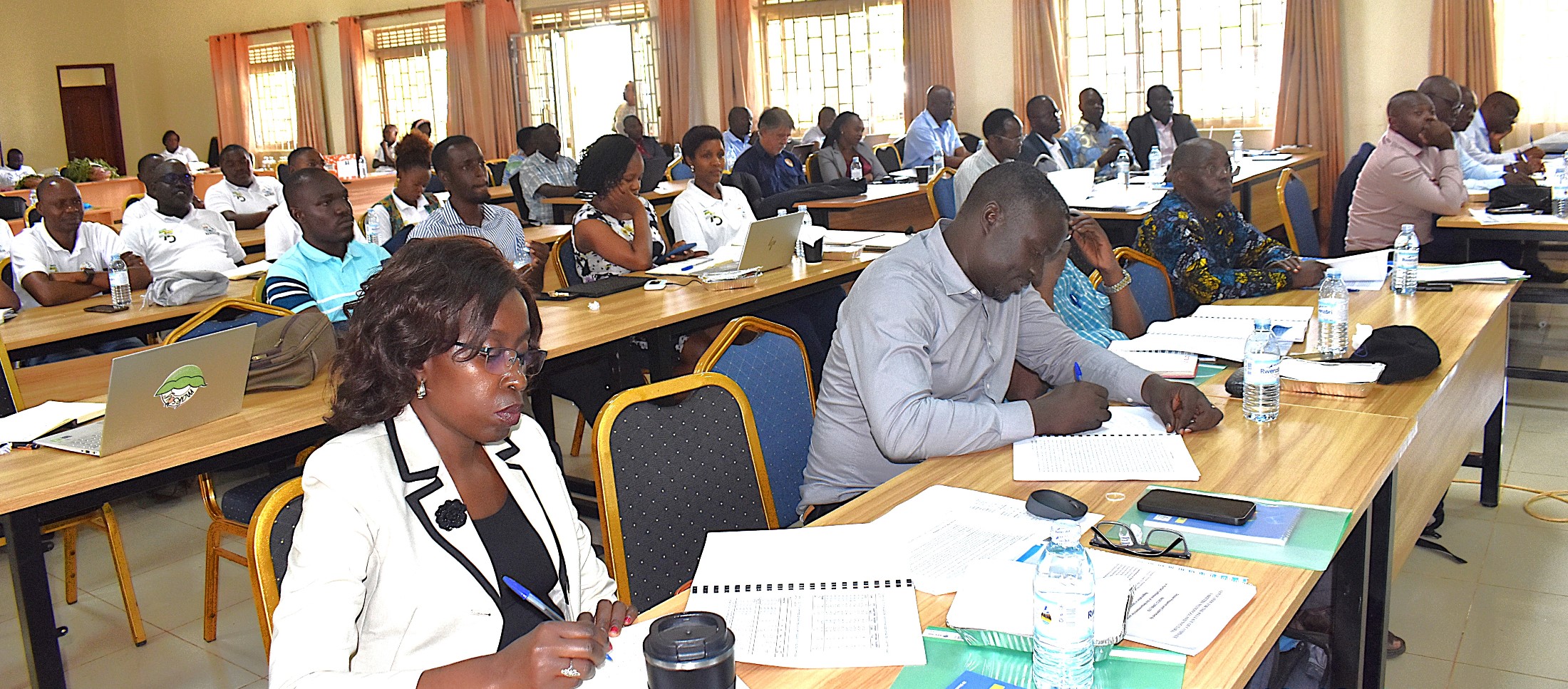
Appreciation to the partners
Prof. Tukamuhabwa expressed gratitude to the local and international development partners for their invaluable support to the project. These partners include the Ministry of Agriculture, Animal Industry and Fisheries (MAAIF), the National Oil Seeds Project(NOSP) and the International Fund for Agricultural Development (IFAD) who funded the research. Other research partners include the National Agricultural Research Organization (NARO), the Regional Universities Forum for Capacity Building in Agriculture (RUFORUM), Integrated Seed and Sector Development Uganda (ISSD Uganda), Soybean Africa Ltd, Makerere University Animal Science Laboratory, Soybean Innovation Lab, International Institute of Tropical Agriculture (IITA), and the host farmers who participated in the on-farm trials.
He also appreciated the Makerere University administration for the support extended to MAKCSID.
Honoring the Research Team
Addressing the meeting, Dr. Kikafunda, Chair of the National Variety Release Committee, praised the research team for their exceptional achievements and steadfast dedication to enhancing the nation’s food security. He emphasized the importance of their work in driving agricultural innovation and urged them to prioritize the rapid multiplication and widespread distribution of the new varieties, ensuring they reach the farmers and contribute to increased productivity and improved livelihoods across the country.
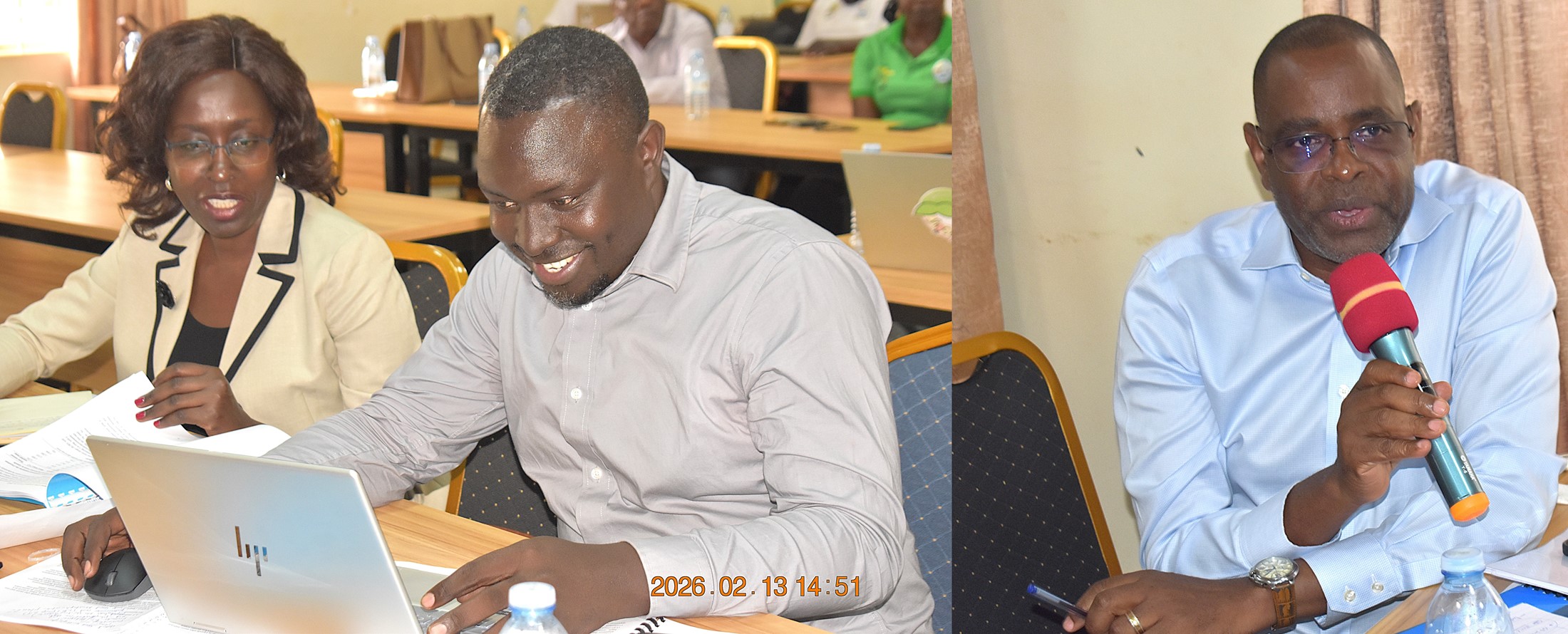
In her remarks, Dr. Mildred Ochwo Ssemakula, Head of the Department of Crop Science and Horticulture at the College of Agricultural and Environmental Sciences (CAES), Makerere University, and member of the National Variety Release Committee, lauded the team for their commitment in developing the new variety, MakSoy 7N. “This is the result of over eight years of dedicated effort. The previous variety, MakSoy 6N, was released in 2017. I deeply appreciate the team’s dedication to field activities. I also commend the former Principal of CAES, Prof. Bashaasha, for his contribution in making the MakCSID a reality, and the current Principal, Prof. Gorettie Nabanoga, for her continued support to the Centre.”
Dr. Ochwo further recognized the pivotal role of Makerere University, particularly CAES, in training critical human resources for the country, noting that most innovators and personnel in key agricultural organizations are graduates of CAES.
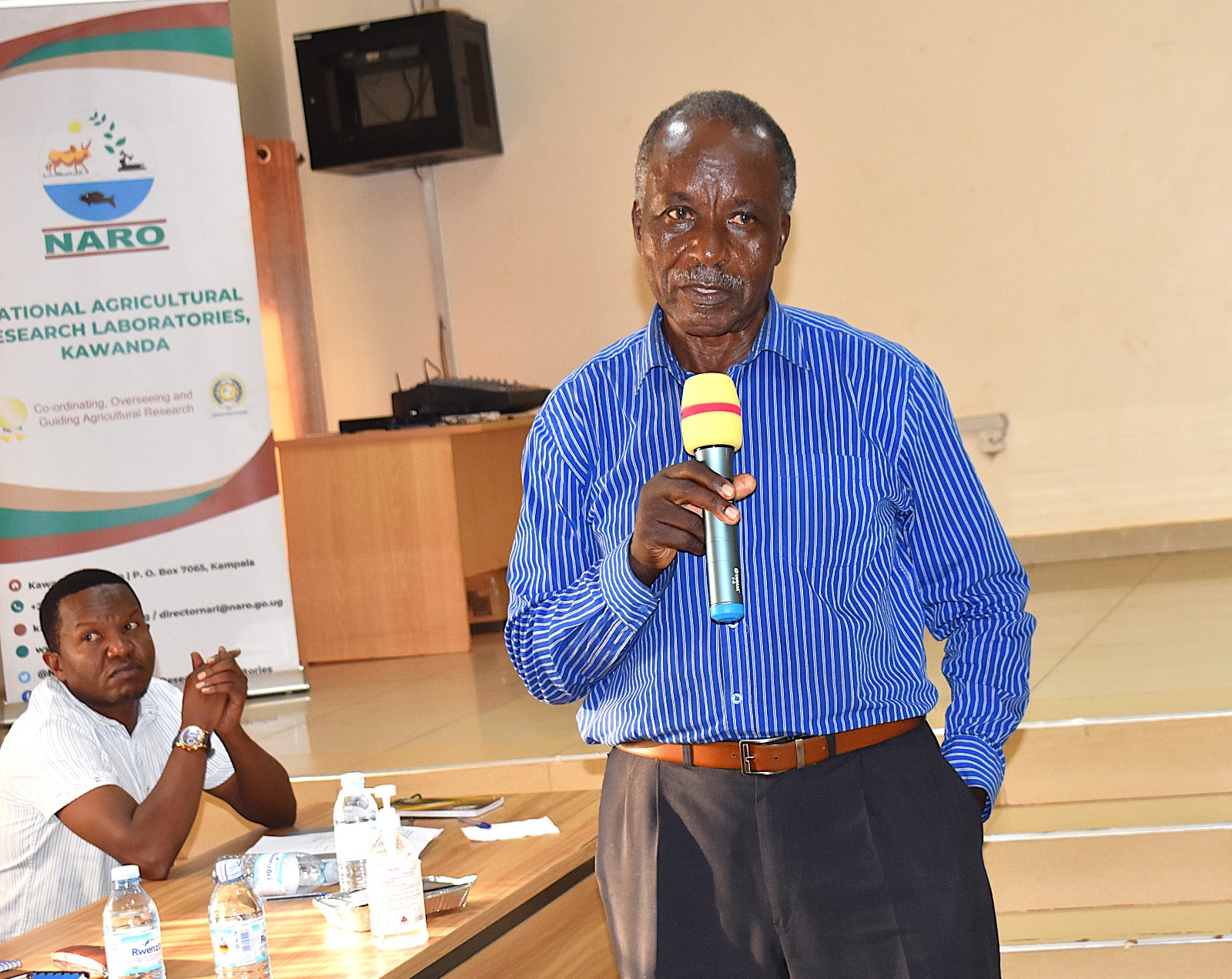
The Soybean research team includes:
- Prof. Phinehas Tukamuhabwa – Breeder & Team Leader
- Dr. Tonny Obua – Breeder
- Prof. Jeninah Karungi – Entomologist
- Dr. Geoffrey Tusiime – Pathologist
- Dr. Thomas Odong – Data Scientist
- Dr. Dennis Okii – Data Scientist/Germplasm Research
- Ms. Mercy Namara – Seed Scientist
- Mr. Alex Malaala – Agronomist
- Mr. George Yiga – Nursery Manager
- Mr. Jordan Uworthrwoth – Germplasm Maintenance
Approval of the Sweet Potato and Sorghum Varieties from NARO and NASECO
At the same event, the Committee approved three purple-fleshed sweet potato varieties – NAROSPOT 8P, 9P, and 10P – developed by the National Agricultural Research Organization (NARO). These varieties are credited for their high yields, strong disease resistance, and abundant provitamin A content. With a short growing period of just three to four months, these sweet potatoes allow farmers to achieve multiple harvests annually, boosting both productivity and profitability.
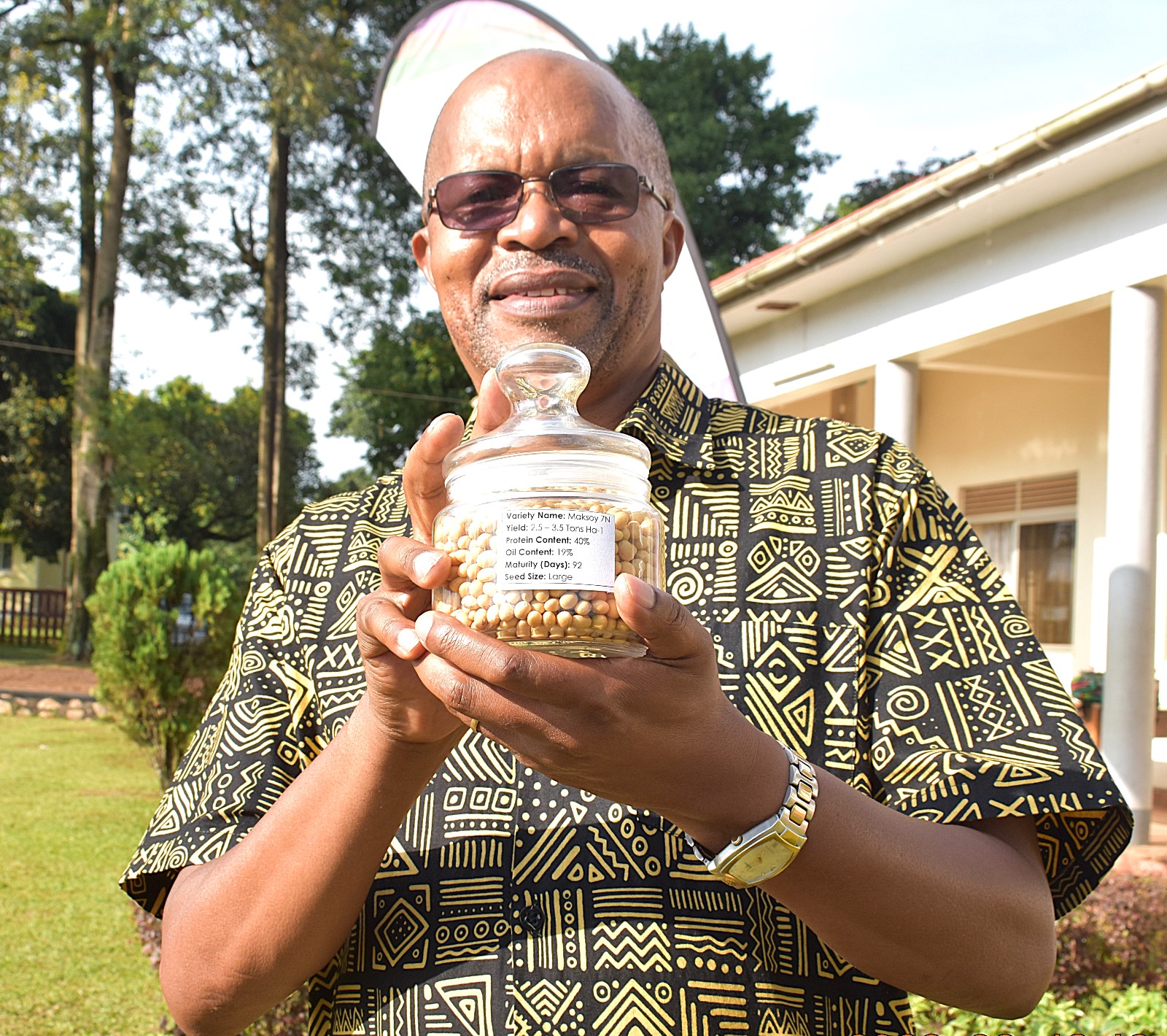
The committee also approved two high-yielding sorghum hybrid varieties, NS1 (Tongo) and NS5 (Tara), from NASECO (1996) (U) Ltd. These varieties are versatile, suitable not only for food consumption but also for livestock feed, bioethanol production, and brewing. Early reports indicate strong adoption rates among farmers, which is expected to reduce dependence on imported hybrid seeds and strengthen the local agricultural seed industry.
More photos from the event
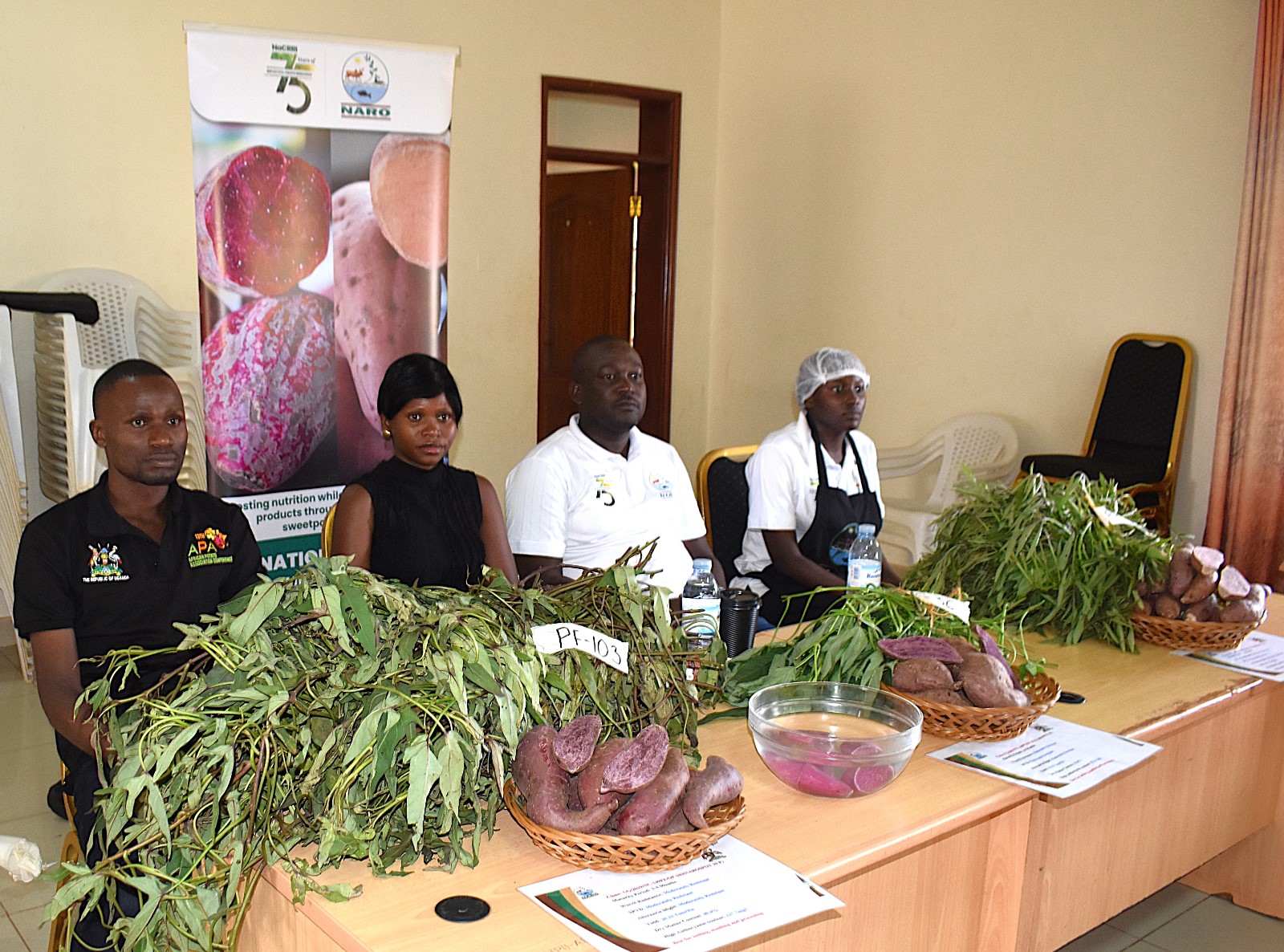
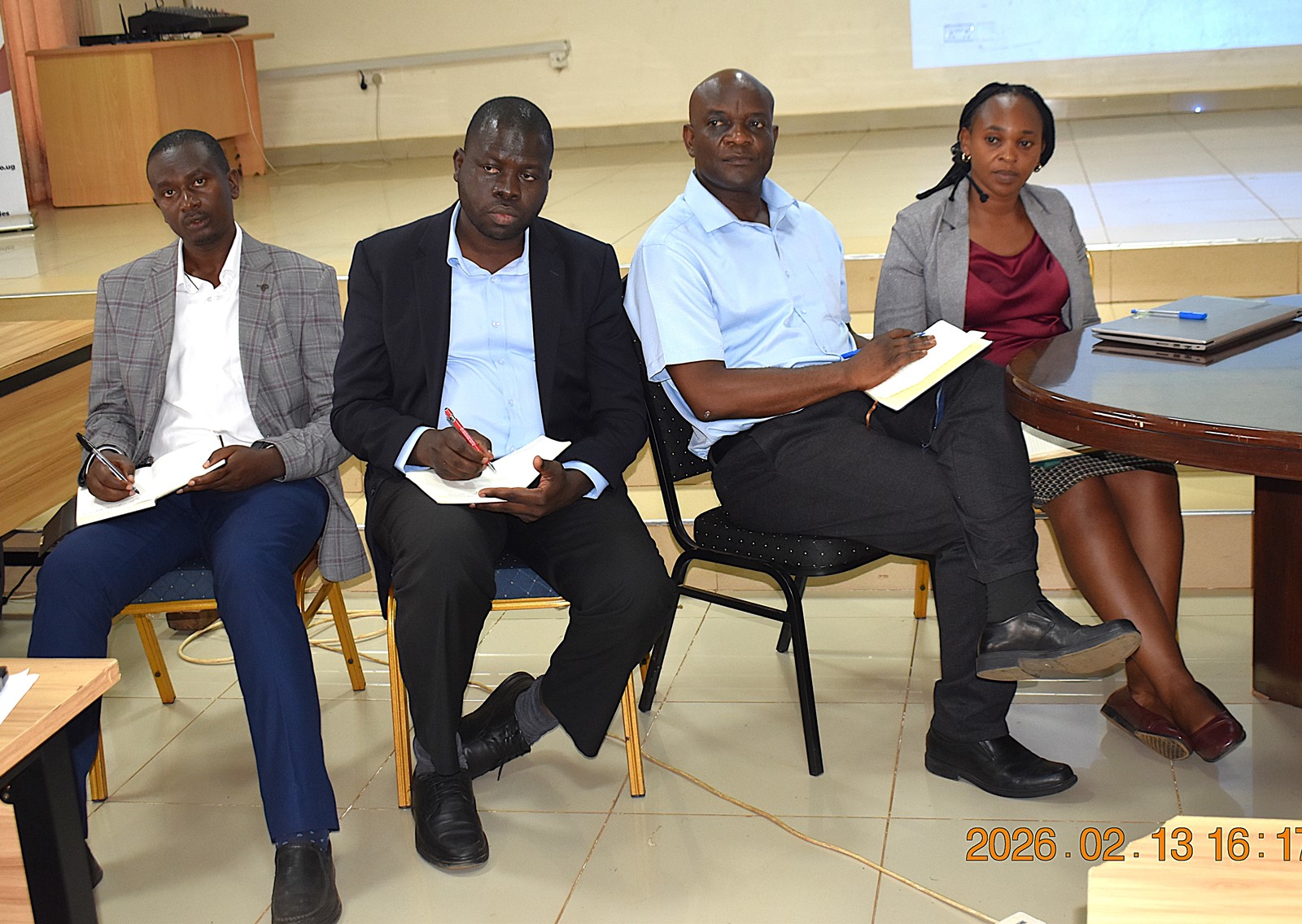
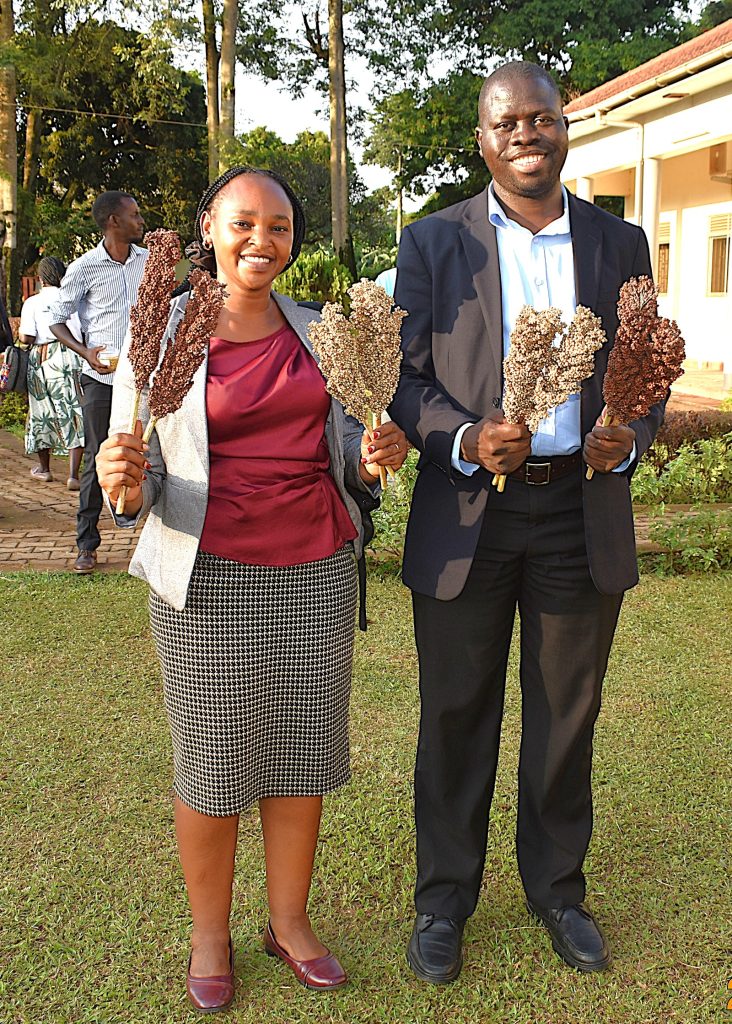
Trending
-

 Humanities & Social Sciences2 days ago
Humanities & Social Sciences2 days agoMeet Najjuka Whitney, The Girl Who Missed Law and Found Her Voice
-

 Health7 days ago
Health7 days agoUganda has until 2030 to end Open Defecation as Ntaro’s PhD Examines Kabale’s Progress
-

 Agriculture & Environment5 days ago
Agriculture & Environment5 days agoUganda Martyrs Namugongo Students Turn Organic Waste into Soap in an Innovative School Project on Sustainable Waste Management
-

 General7 days ago
General7 days agoMastercard Foundation Scholars embrace and honour their rich cultural diversity
-

 Health2 weeks ago
Health2 weeks agoCall for Applications: Short Course in Molecular Diagnostics March 2026
